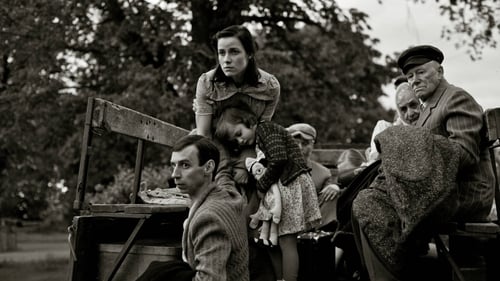
Director of Photography
The documentary “Brotherhood of Lions” is a story about the legendary football club Lions. Lions were created in 1978 under the leadership of Roman Ubakivi who wanted to start training Estonian boys when the general sports circles did not think the world’s most popular game was suitable for Estonians. The tremendous training volumes, successful trips to competitions in the Soviet Russia, tales of happenings and work ethics that are absurd from today’s point of view all paint a colourful, warm and inspiring story of young men, their charismatic coach and everybody else who took part in their journey. Promoted by the media, those young boys became national heroes at the end of the 1980s and, in the winds of freedom, people started to see them as the Estonian football team. Unknowingly, the Lions were thus like the ambassadors of freedom, and even more so – the foundations of football in the newly independent Estonia.

Director of Photography
The film summarizes the life and creative path of Mati Hint, an outstanding linguist, essayist, lecturer and who played an important role during the restoration of Estonia's independence.

Director of Photography
A portrait film about one of the brightest legends of Estonian pop music, Marju Länik. How did Marju's nearly forty-year-long successful and glamorous stage career begin and what kind of life does she live in today's Estonia?

Director of Photography
Karit, Doris, Joonas and Fred are ordinary Estonian young people. They are graduating from 12th grade and taking steps toward independence. There are many options and it's quite difficult to make choices. This is the story of one generation, a film about growing up in today's Estonia. The film is a continuation of the documentary "Time Is Here" made 12 years ago, in which we watched the first school year of these same kids.

Director of Photography
The documentary portrays the acclaimed Song Festival conductor and music teacher Lydia Rahula. She has inspired the kids to love music for over five decades. However, her life's work is the Tallinn Boys' Choir. Besides vocal training, she has also raised generations of boys to be a gentleman. Thanks to her, many Estonian men are much better men. It's unbelievable that Lydia is in her seventies. She is extremely vital and full of energy. It is no problem for her even to have a football match with the boys. After all, age is nothing but a number, and she proves it. The film's culmination is the Estonian Song Festival in 2019, one of the largest choral events in the world, where Lydia is conducting the united boys' choirs.

Director of Photography
Composer and pianist Rein Rannap’s contribution to Estonian music is priceless, but his personality is very complex and contradictory. In numerous TV shows, viewers have met exactly the Rannap that he chooses to show them at that very moment.

Director of Photography
Karl and Carla is set in an ironic dystopia from the near future, where adult relationships and interactions are regulated and controlled by the government’s ‘Happiness Institute’.

Producer

Director

Cinematography
"A Bad Scene" is a film compilation, which speaks about the darker currents hiding in human relationships, situations, which are practically inescapable, in five different ways. The second short film "Early Spring" is not a cool youth movie about frolicking teenagers. It's a sociopsychological challenge to incite a discussion about group dynamics, conformism, and social roles that are largely shaped and confirmed in teenage years. Hopefully there is a moment of self-reflection here for everyone who has witnessed the blind acceptance of the group leader's whims, even when they clash with the observer's principles and conscience. Later it's almost impossible to analyse what happened, and why. Sander is not the only victim here. You could even speak about Alo in those terms, not to mention Laura. In another world, Sander and Laura might have been a young couple in love, but it is impossible in given social structure.

Electrician
June 14, 1941, 3 a.m. Over 40000 people from Estonia, Latvia and Lithuania are deported by Soviets to Siberia. Among them is a philosophy student Erna, a happily married mother of a little girl. Separated from her husband Erna and her daughter are dispatched together with other women and children to remote Siberian territories. Despite hunger, fear and brutal humiliation Erna never in next fifteen years loses her sense of freedom and hope of returning to homeland. The story is inspired by real events.








